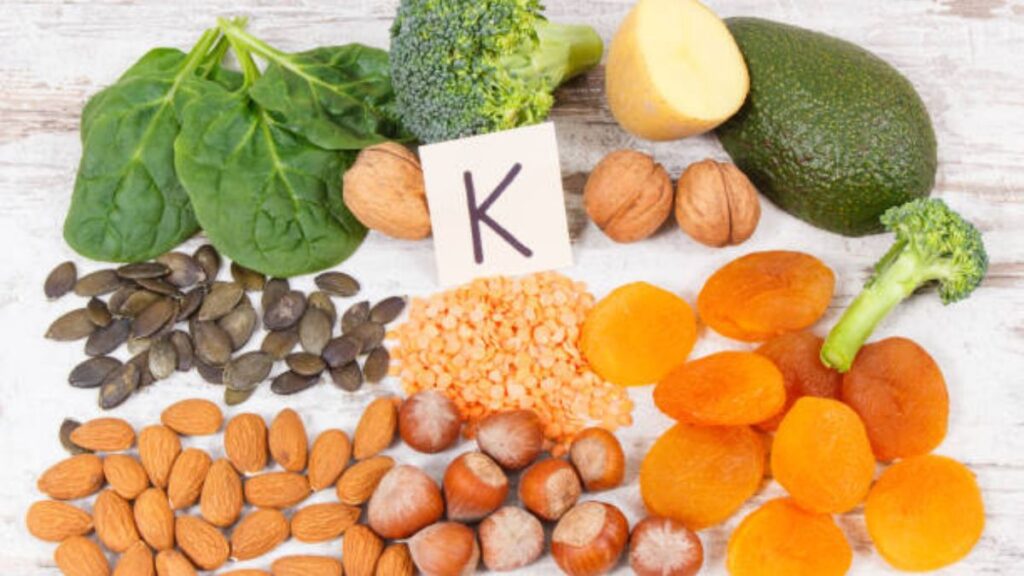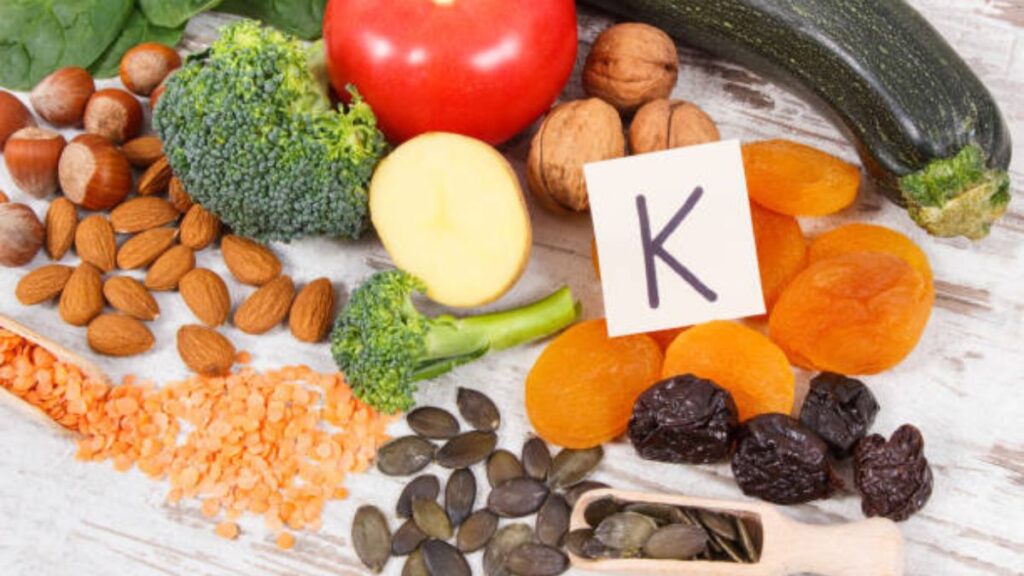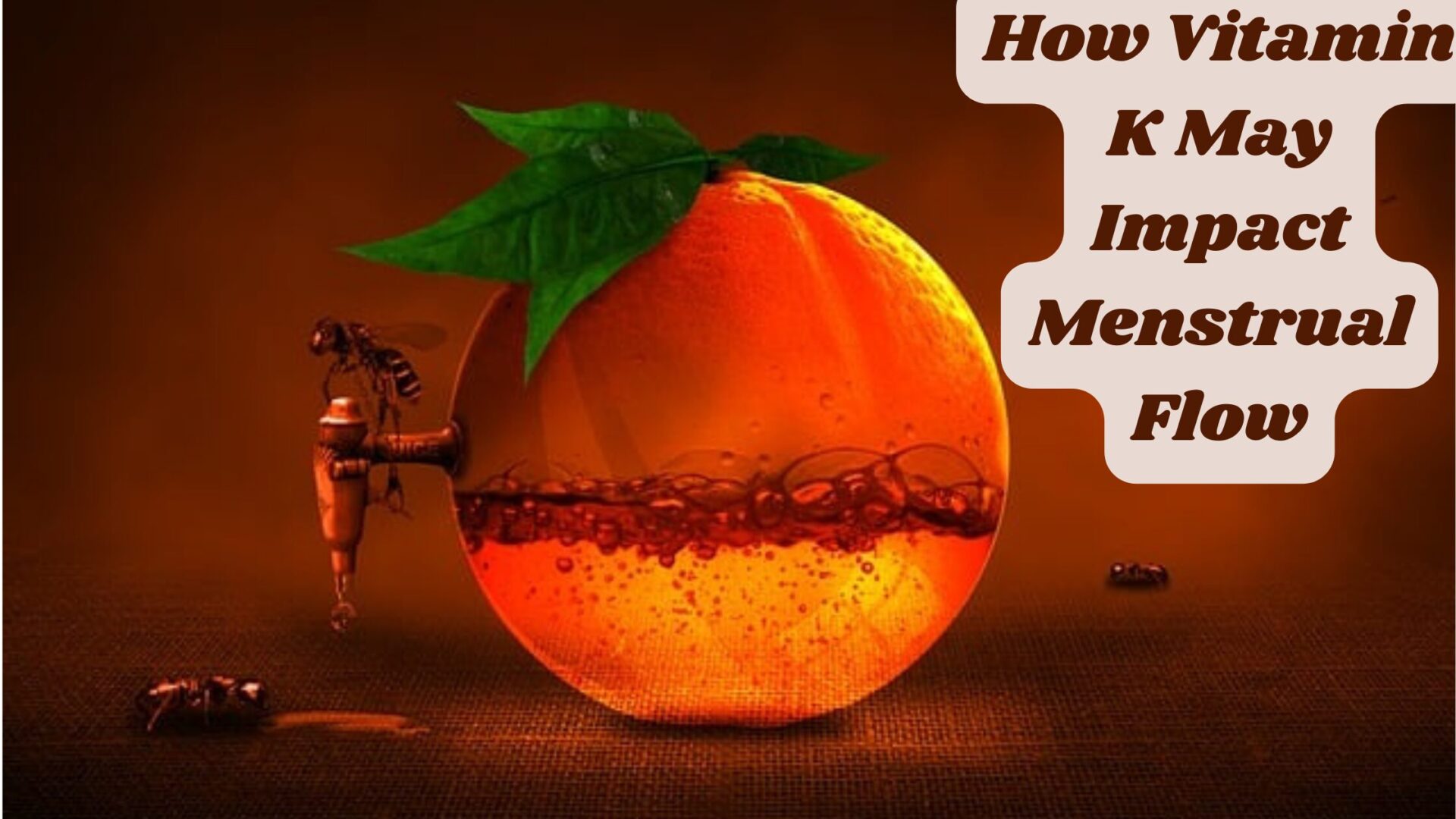Introduction:
Beyond Supplements: How Vitamin K May Impact Menstrual Flow

Menstrual health is a crucial aspect of a woman’s well-being, and exploring natural approaches to managing menstrual flow is gaining attention. In this article, we delve into the fascinating realm of Vitamin K and its potential impact on menstrual flow, going beyond conventional supplements to understand its broader implications.
Understanding Vitamin K
Vitamin K is renowned for its role in blood clotting and bone health, but recent studies have sparked interest in its potential effects on menstrual flow. While supplements are a common source, it’s essential to explore how dietary choices and lifestyle factors may contribute to Vitamin K levels.
The Link Between Vitamin K and Menstrual Health:
Research suggests that Vitamin K could influence menstrual flow by promoting proper blood clotting and circulation. A well-balanced intake may contribute to more regular and manageable periods.
Food Sources Rich in Vitamin K:
Instead of solely relying on supplements, incorporating Vitamin K-rich foods into your diet can be a natural approach. Leafy greens, broccoli, Brussels sprouts, and other cruciferous vegetables are excellent sources. Discovering diverse ways to enjoy these foods can enhance overall menstrual health.
Lifestyle Factors for Menstrual Wellness:
Beyond diet, lifestyle choices play a vital role in menstrual health. Regular exercise, stress management, and adequate sleep contribute to overall well-being and may indirectly impact Vitamin K levels, potentially influencing menstrual flow.
Potential Benefits and Considerations:
While Vitamin K’s role in menstrual health is intriguing, it’s crucial to approach it with a balanced perspective. Consulting with healthcare professionals and understanding individual health needs is essential, especially for those considering adjustments to their Vitamin K intake.
Empowering Women’s Health Naturally:
In the quest for natural solutions to menstrual challenges, exploring the impact of Vitamin K opens new avenues. By embracing a holistic approach that includes nutrition, lifestyle, and informed choices, women can take proactive steps towards managing their menstrual flow naturally.
What is the best way to take vitamin K?
The best way to take vitamin K depends on individual health needs, dietary preferences, and the guidance of a healthcare professional. Here are some general recommendations:

- Dietary Sources:
- Incorporate vitamin K-rich foods into your diet. Leafy green vegetables such as kale, spinach, collard greens, and broccoli are excellent sources of vitamin K1. Fermented foods like natto and certain cheeses provide vitamin K2.
- Balanced Diet:
- Aim for a balanced and varied diet that includes a range of nutrients, including vitamin K. A diverse diet helps ensure you get an adequate amount of vitamins and minerals naturally.
- Supplements:
- If you have a deficiency or are advised by a healthcare professional to take vitamin K supplements, follow their recommendations regarding dosage and frequency. Vitamin K supplements are available in various forms, including K1 and K2.
- Types of Vitamin K:
- Vitamin K1 (phylloquinone) is commonly found in plant-based foods, while vitamin K2 (menaquinone) is often present in fermented foods and animal products. Depending on your dietary choices and health needs, your healthcare provider may recommend one form over the other.
- Consistency:
- If taking vitamin K supplements, consistency is key. Follow the prescribed dosage and frequency recommended by your healthcare provider to maintain stable levels in your body.
- Consideration of Medications:
- If you are taking medications, especially blood thinners like warfarin, it’s crucial to inform your healthcare provider before adding vitamin K supplements to your routine. Vitamin K can interact with certain medications, and adjustments may be necessary.
- Professional Guidance:
- Always consult with a healthcare professional before making significant changes to your diet or starting any supplementation, especially if you have health concerns or medical conditions.
Remember, individual needs vary, and what works for one person may not be suitable for another. Seeking guidance from a healthcare provider ensures that you receive personalized advice based on your health status and goals. They can conduct necessary assessments, such as blood tests, to determine if vitamin K supplementation is necessary and provide appropriate recommendations.
What happens if I take vitamin K every day?
While vitamin K is essential for various bodily functions, including blood clotting and bone metabolism, taking excessive amounts of vitamin K supplements daily may have potential risks and side effects. It’s important to note that the recommended daily intake of vitamin K varies depending on factors such as age, sex, and individual health conditions.
Here are some potential consequences of taking too much vitamin K:
- Interference with Medications:
- High doses of vitamin K can interfere with certain medications, especially blood thinners like warfarin. It’s crucial to inform your healthcare provider if you are taking vitamin K supplements, as adjustments to medication dosages may be necessary.
- Blood Clotting Issues:
- Excessive vitamin K can lead to overactive blood clotting, potentially causing complications such as deep vein thrombosis (DVT) or pulmonary embolism.
- Interaction with Anticoagulants:
- If you are on anticoagulant medications, such as warfarin, sudden changes in vitamin K intake can affect the medication’s effectiveness. Consistency in vitamin K intake is essential for individuals on blood thinners.
- Digestive Issues:
- High doses of vitamin K may cause gastrointestinal issues, including nausea, diarrhea, or stomach cramps.
- Allergic Reactions:
- Allergic reactions to vitamin K supplements are rare but possible. Symptoms may include itching, rash, swelling, or difficulty breathing. Seek medical attention if you experience any allergic reactions.
- Risk of Hemolytic Anemia in Newborns:
- In rare cases, excessive vitamin K intake during pregnancy may pose a risk of hemolytic anemia in newborns. Pregnant individuals should follow healthcare provider recommendations regarding vitamin K supplementation.
It’s crucial to emphasize that obtaining vitamin K through a balanced diet, including vitamin K-rich foods, is generally safe and provides the necessary nutrients without the risks associated with excessive supplementation. If you have concerns about your vitamin K levels or are considering supplementation, consult with a healthcare professional. They can assess your individual needs, consider potential interactions with medications, and provide personalized guidance to ensure your safety and well-being.
Conclusion:
“Beyond Supplements: How Vitamin K May Impact Menstrual Flow” invites women to consider the broader implications of Vitamin K on menstrual health. As we explore the potential benefits and delve into lifestyle factors, the goal is to empower women with knowledge and options for promoting a balanced and natural approach to menstrual wellness. Remember, personalized healthcare advice is invaluable, and consulting with healthcare professionals can guide you on a path that aligns with your individual needs and goals.
FAQs
What is Vitamin K?
Vitamin K is a fat-soluble vitamin that plays a crucial role in blood clotting and bone health. There are two main types: Vitamin K1 (phylloquinone), found in green leafy vegetables, and Vitamin K2 (menaquinone), found in animal products and fermented foods.
How does Vitamin K impact menstrual flow?
Vitamin K is essential for the production of certain proteins that help in blood clotting. Adequate levels of Vitamin K can help reduce excessive menstrual bleeding by ensuring that the blood clots properly.
Can a deficiency in Vitamin K cause heavy menstrual bleeding?
Yes, a deficiency in Vitamin K can lead to problems with blood clotting, which may result in heavier menstrual bleeding. This condition is known as menorrhagia.
References
- National Institutes of Health (NIH) – Office of Dietary Supplements
- Mayo Clinic
- Harvard T.H. Chan School of Public Health
- MedlinePlus








